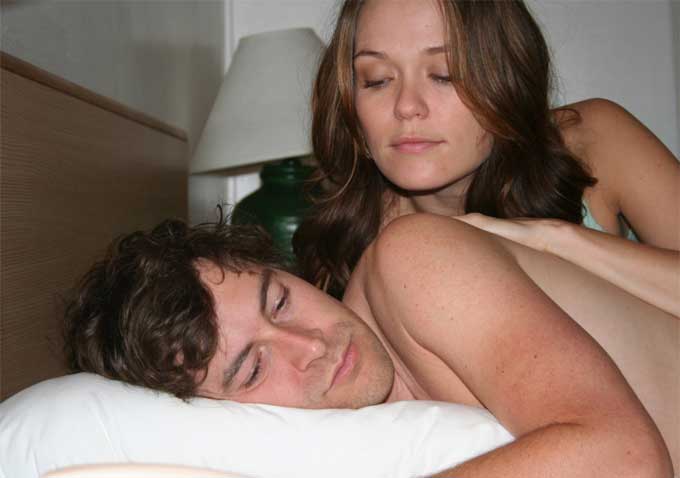By providing your information, you agree to our Terms of Use and our Privacy Policy. We use vendors that may also process your information to help provide our services. This site is protected by reCAPTCHA Enterprise and the Google Privacy Policy and Terms of Service apply.
The Word ‘Mumblecore’ Turns 10 Years Old This Year. Can We Stop Using It Now?
Eric Kohn

Almost exactly 10 years ago, Andrew Bujalski was being interviewed by Indiewire contributor Michael Koresky when the filmmaker made an off-the-cuff remark that would haunt him. Shortly after the premiere of Bujalski’s sophomore feature “Mutual Appreciation” at the South by Southwest Film Festival, the same week that his debut “Funny Ha Ha” landed on DVD, Bujalski was asked about other contemporary filmmakers whose work — as Koresky put it — “harmonized” with his own. Bujalski recalled rumblings of a “movement” at SXSW, the same year that Joe Swanberg’s debut “Kissing on the Mouth” premiered and the Duplass brothers’ “The Puffy Chair” won an audience prize.
 While far from a premeditated movement, the perceptions associated with mumblecore stemmed from a real place: Several filmmakers less intrigued by the prospects of big budget studio filmmaking than naturalistic portraits of worlds they knew far better focused on similar topics; many of them worked within the confines of a tight-knit community, sharing resources and inspiration.
While far from a premeditated movement, the perceptions associated with mumblecore stemmed from a real place: Several filmmakers less intrigued by the prospects of big budget studio filmmaking than naturalistic portraits of worlds they knew far better focused on similar topics; many of them worked within the confines of a tight-knit community, sharing resources and inspiration. READ MORE: Watch: Cobie Smulders and Guy Pearce Make Fitness Funny in ‘Results’ Trailer
 Bujalski’s plot veers in a number of different directions as it explores each of these figures’ uneasy mindsets while they attempt to find some modicum of satisfaction in their lives. At the same time, however, Bujalski maintains a clearly defined arc from start to finish: the longing that each character feels and their ongoing incapacity to express as much.
Bujalski’s plot veers in a number of different directions as it explores each of these figures’ uneasy mindsets while they attempt to find some modicum of satisfaction in their lives. At the same time, however, Bujalski maintains a clearly defined arc from start to finish: the longing that each character feels and their ongoing incapacity to express as much.That cogent theme, realized with such delicately entertaining tropes, shows Bujalski’s growth as a filmmaker. Though not as bizarrely compelling as his wacky period comedy “Computer Chess,” a black-and-white chronicle of an 80’s-era computer conference, nor as enjoyably anarchic as “Funny Ha Ha,” on some level “Results” consolidates Bujalski’s appeal while amplifying its potential to speak to broader sensibilities. This isn’t mumblecore; it’s an Andrew Bujalski movie.
By providing your information, you agree to our Terms of Use and our Privacy Policy. We use vendors that may also process your information to help provide our services. This site is protected by reCAPTCHA Enterprise and the Google Privacy Policy and Terms of Service apply.















